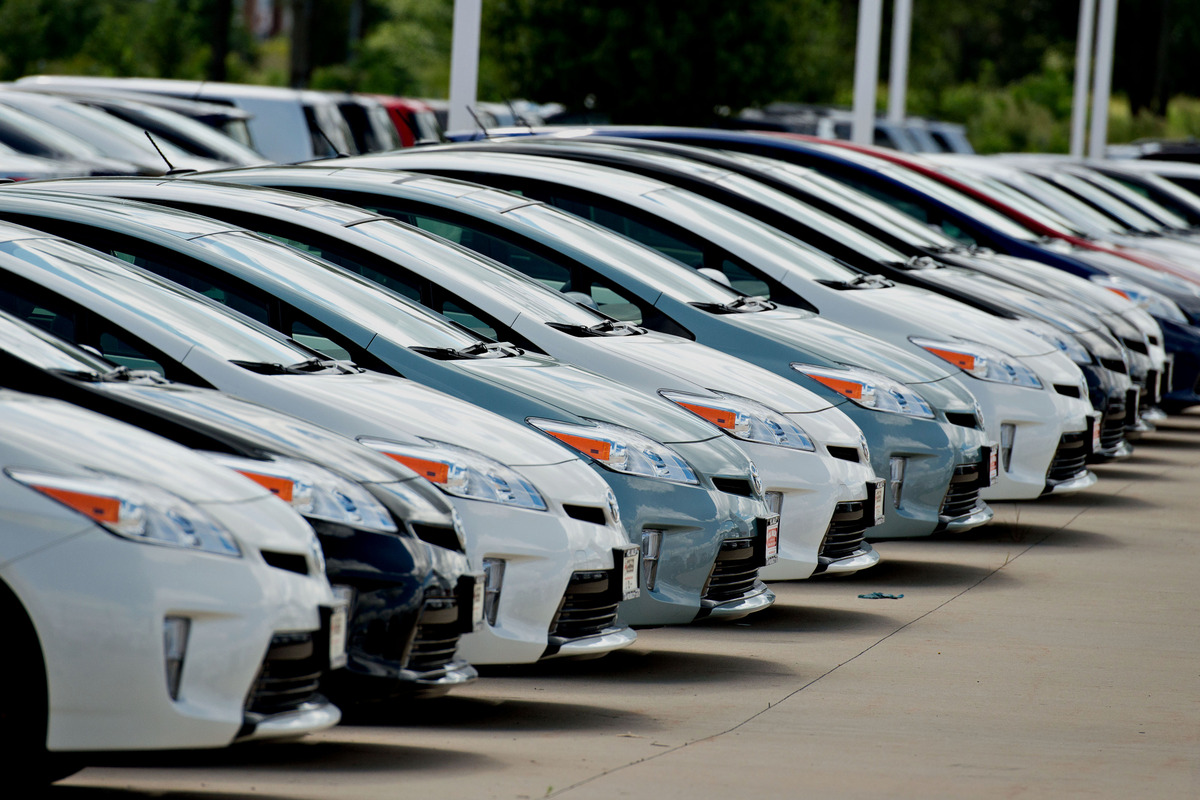- Nigeria’s Auto Industry to Import Less than 10,000 Vehicles in 2017, Says Ade-Ojo
Nigeria’s auto industry is expected to import and sell between 8,000 and 10,000 new vehicles this year, a figure that is lower than the 15,000 projected for last year.
The Managing Director, Toyota Nigeria Limited, Mr. Kunle Ade-Ojo, gave this figure at the company’s forecast for the Nigerian automobile industry in 2017 at Toyota’s quarterly briefing in Lagos on Monday.
The forecast, Ade-Ojo said, was based on the industry’s performance in the first quarter of 2017, adding that at the end of the first quarter of 2017, total import figures for the nation’s automobile industry from the nation’s ports came to about 350 units, compared to about 3,500 units that came in at the same time last year.
He said the data showed that “imports dropped by about 90% between 2016 and 2017 Q1. In terms of retail sales, we are estimating, based on the information we have, that the auto market did about 2,000 vehicles compared to about 5,000 vehicles that were sold in Q1 of 2015, bringing it to a drop of over 50% when you look in terms of retail sales”.
In terms of market share, he said: “Toyota had a share of about 22-23% of Q1 sales, generally”.
“But forex continues to be a major challenge and interest rates have gone up,” he added.
He explained that along with the dollar scarcity, “so also the naira is pretty much scarce and banks’ interest rates have gone up.
“Even though the exchange rate has moderated from a high of about N520 to the dollar and is trading at about N400 to the dollar, it is still not available,” he added.
Also providing figures on the performance of the industry in 2016, Ade-Ojo said: “In terms of sales, retail sales went from about 32,000 cars in 2015 to about 18,000 last year. So the market dropped by about 42%.”
He said Toyota Nigeria Limited “went down from about 8,000 cars in 2015 to slightly over 4,000 in 2016. So we had a drop of about 35%”.
Regardless of this, he said: “We grew our share from 24% in 2015 to about 26% in 2016.”
Reviewing imports in the same period, he said car imports dropped by about 60%, from about 18,000 in 2015 to just close to 7,000 in 2016.
“Of course in terms of our share of the imports, we had about 43% in 2015 and that dropped to about 38% in 2016,” he stated.
He said this was basically as a result of different sub-groupings, different manufacturers or auto distributors in the country and “in addition to that, the scarcity of forex affected businesses last year and that caused a major reduction in importation”.
According to him, the devaluation of the naira also affected sales last year, saying: “Whereas in the first half of 2016 the naira was about 200 to the dollar, by the end of the year it had doubled.
“So prices of vehicles also pretty much doubled and a lot of businesses could not afford to pay for the increase. We at TNL are struggling to survive.
“A lot of companies had to retrench their staff last year as a result of the tough economic situation.”
The Toyota boss said companies had to prioritise on what they would spend their limited funds on.
“Vehicles, you know are luxury items, except for the ones that are used for business, which are commercial vehicles and that is why commercial vehicles did way much better last year, at about 70% to 30% in terms of the ratio to passenger vehicles.
“Passenger cars reduced in sales more than commercial cars and of course when you look at the duties on passenger cars also at 70% compared to 35% for commercial, the impact is more on passenger vehicles,” he explained.
Also, he said companies had increased the number of years that their staff use their vehicles. “Normally, it used to be for four years, but now companies have taken it up to between five and six years before they will consider changing or replacing their staff vehicles,” he explained.e explained.


 Naira4 weeks ago
Naira4 weeks ago
 Naira4 weeks ago
Naira4 weeks ago


 Naira4 weeks ago
Naira4 weeks ago




 Naira3 weeks ago
Naira3 weeks ago
 Commodities4 weeks ago
Commodities4 weeks ago


 News3 weeks ago
News3 weeks ago


 Banking Sector4 weeks ago
Banking Sector4 weeks ago
 Travel4 weeks ago
Travel4 weeks ago























